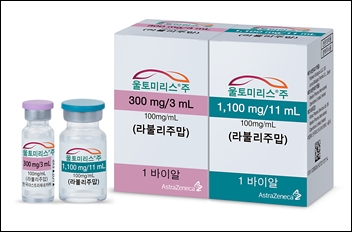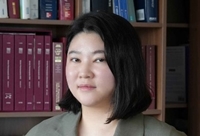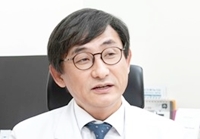- NMOSD patients call for Ultomiris’s reimbursement
- by Hwang, byoung woo | translator Alice Kang | Sep 22, 2025 06:11am
Specifically, voices are rising on the need to improve access to Ultomiris (ravulizumab), which has demonstrated a relapse-free period of 73.5 weeks in a clinical trial, as a paradigm-shifting therapy to overcome the limitations of existing treatments.
Need for treatment approaches focused on “relapse prevention” highlighted in NMOSD
NMOSD is a central nervous system autoimmune disorder that causes nerve damage, primarily presenting with optic neuritis and myelitis. More than 90% of patients experience relapses.

NMOSD occurs most frequently in women in their 30s and 40s, an age group typically active in the workforce, leading to social isolation caused by employment discontinuation, reduced interpersonal interactions, and limited activity. This has negative repercussions not only on the individual but also on families and society as a whole.
For example, patient A first experienced symptoms around the age of 16, but it took 5 years to receive an accurate NMOSD diagnosis. By then, despite devoting herself to treatment, the aftereffects of frequent relapses left her with significant daily limitations.
She is currently being treated with MabThera (rituximab), but side effects make even basic tasks such as eating and walking difficult without family assistance. Long-term immunosuppressive therapy has also weakened her immunity, making her prone to colds, pneumonia, and enteritis, and at times she has faced emergencies such as breathing difficulties and shock.
In NMOSD treatment, the key is to block relapses at an early stage.
Experts in Korea and abroad emphasize that because even a single relapse can cause irreversible damage, treatment approaches aimed at preventing relapse itself are critical.
Ultomiris demonstrates “relapse-free” effect in NMOSD
Against this backdrop, the next-generation C5 complement inhibitor Ultomiris has gained attention as an innovative therapy, confirming relapse-free efficacy in a Phase III trial with NMOSD patients.
By improving its half-life, the drug overcomes limitations of previous therapies, and among 58 patients in the Ultomiris group, the relapse rate during the trial period was 0%, suggesting a paradigm shift in NMOSD treatment.

Dosing intervals are also noteworthy: Ultomiris can be administered every 8 weeks, significantly reducing treatment burden compared to Soliris, which requires dosing every 2 weeks.
Professor Ho-Jin Kim from the Department of Neurology at the National Cancer Center explained, “The extended dosing interval not only reduces hospital visits, it also lowers physical strain and additional costs associated with travel for patients with impaired mobility and vision. Such improvements in treatment convenience can enhance patients’ quality of life and adherence to therapy.”
However, the fact that Ultomiris is yet to be reimbursed in Korea limits actual treatment access.
Accordingly, both clinical experts and the Korean NMOSD Patient Association are increasingly calling for guaranteed access to proven therapies.
Patient A said, “I live with daily anxiety, never knowing when a relapse will strike. I know there is a therapy that prevents relapses, but cannot try it because it is not reimbursed.”
Meanwhile, to promote proper understanding and social awareness of NMOSD, a “Stay ZERO” concert will be held on September 25 at the National Assembly Member Office Building.
The event aims to amplify the voices of patients longing for a “relapse-free life,” raise awareness of the importance of relapse-prevention treatment, and emphasize the need for improved treatment accessibility.
-

- 0
댓글 운영방식은
댓글은 실명게재와 익명게재 방식이 있으며, 실명은 이름과 아이디가 노출됩니다. 익명은 필명으로 등록 가능하며, 대댓글은 익명으로 등록 가능합니다.
댓글 노출방식은
댓글 명예자문위원(팜-코니언-필기모양 아이콘)으로 위촉된 데일리팜 회원의 댓글은 ‘게시판형 보기’와 ’펼쳐보기형’ 리스트에서 항상 최상단에 노출됩니다. 새로운 댓글을 올리는 일반회원은 ‘게시판형’과 ‘펼쳐보기형’ 모두 팜코니언 회원이 쓴 댓글의 하단에 실시간 노출됩니다.
댓글의 삭제 기준은
다음의 경우 사전 통보없이 삭제하고 아이디 이용정지 또는 영구 가입제한이 될 수도 있습니다.
-
저작권·인격권 등 타인의 권리를 침해하는 경우
상용 프로그램의 등록과 게재, 배포를 안내하는 게시물
타인 또는 제3자의 저작권 및 기타 권리를 침해한 내용을 담은 게시물
-
근거 없는 비방·명예를 훼손하는 게시물
특정 이용자 및 개인에 대한 인신 공격적인 내용의 글 및 직접적인 욕설이 사용된 경우
특정 지역 및 종교간의 감정대립을 조장하는 내용
사실 확인이 안된 소문을 유포 시키는 경우
욕설과 비어, 속어를 담은 내용
정당법 및 공직선거법, 관계 법령에 저촉되는 경우(선관위 요청 시 즉시 삭제)
특정 지역이나 단체를 비하하는 경우
특정인의 명예를 훼손하여 해당인이 삭제를 요청하는 경우
특정인의 개인정보(주민등록번호, 전화, 상세주소 등)를 무단으로 게시하는 경우
타인의 ID 혹은 닉네임을 도용하는 경우
-
게시판 특성상 제한되는 내용
서비스 주제와 맞지 않는 내용의 글을 게재한 경우
동일 내용의 연속 게재 및 여러 기사에 중복 게재한 경우
부분적으로 변경하여 반복 게재하는 경우도 포함
제목과 관련 없는 내용의 게시물, 제목과 본문이 무관한 경우
돈벌기 및 직·간접 상업적 목적의 내용이 포함된 게시물
게시물 읽기 유도 등을 위해 내용과 무관한 제목을 사용한 경우
-
수사기관 등의 공식적인 요청이 있는 경우
-
기타사항
각 서비스의 필요성에 따라 미리 공지한 경우
기타 법률에 저촉되는 정보 게재를 목적으로 할 경우
기타 원만한 운영을 위해 운영자가 필요하다고 판단되는 내용
-
사실 관계 확인 후 삭제
저작권자로부터 허락받지 않은 내용을 무단 게재, 복제, 배포하는 경우
타인의 초상권을 침해하거나 개인정보를 유출하는 경우
당사에 제공한 이용자의 정보가 허위인 경우 (타인의 ID, 비밀번호 도용 등)
※이상의 내용중 일부 사항에 적용될 경우 이용약관 및 관련 법률에 의해 제재를 받으실 수도 있으며, 민·형사상 처벌을 받을 수도 있습니다.
※위에 명시되지 않은 내용이더라도 불법적인 내용으로 판단되거나 데일리팜 서비스에 바람직하지 않다고 판단되는 경우는 선 조치 이후 본 관리 기준을 수정 공시하겠습니다.
※기타 문의 사항은 데일리팜 운영자에게 연락주십시오. 메일 주소는 dailypharm@dailypharm.com입니다.









